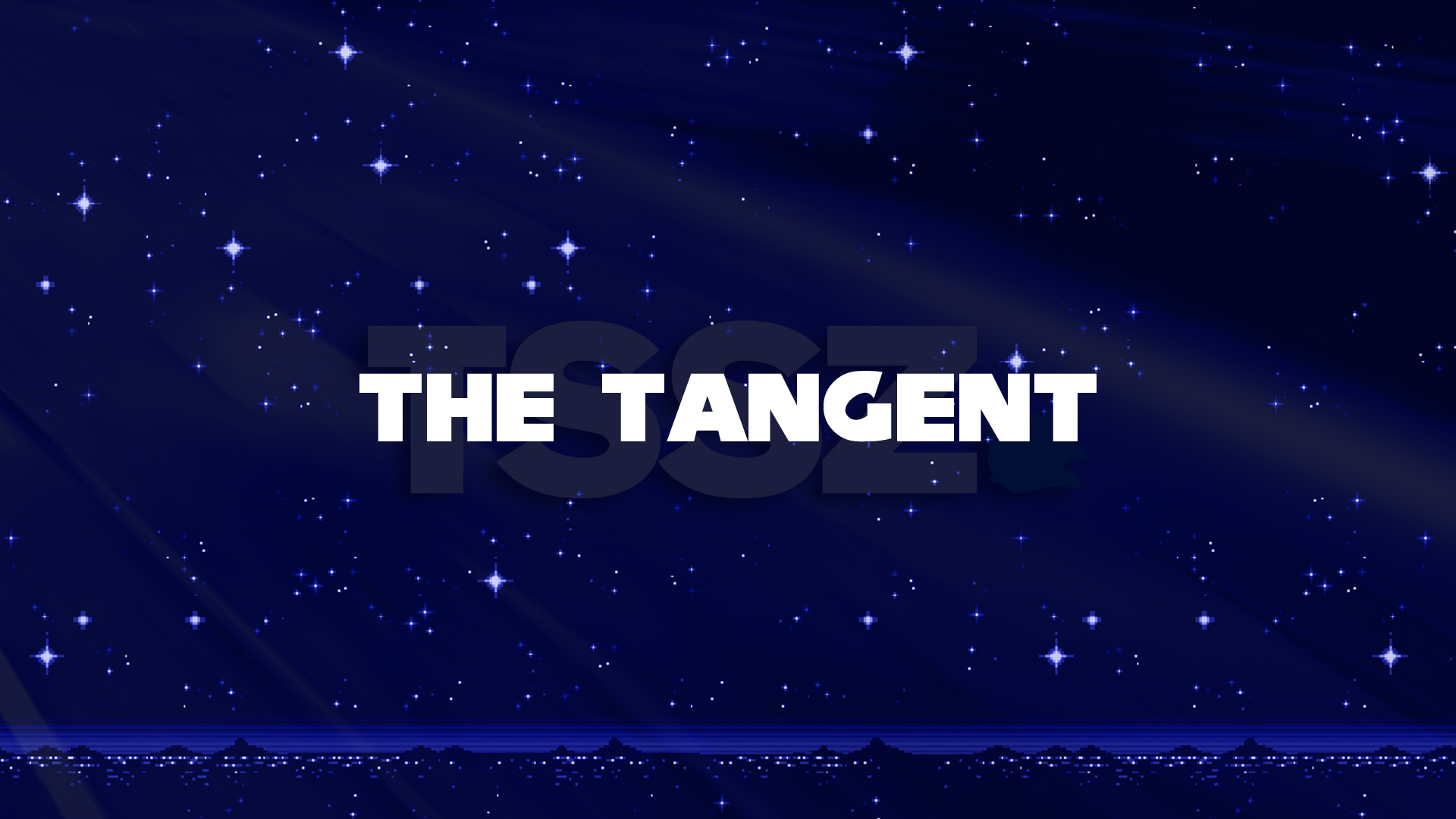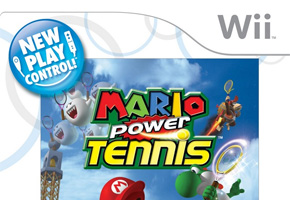
The Tangent: Smart Business
Gamers on the whole are a lot different than they were five, ten years ago. Those connected to the tubes have had more of a direct connection with developers and publishers, and the ones who practice that seemingly lost art of reading have skimmed details of a process glossed over in times past, a far cry from a time when a commercial convinced us the Genesis had Blast Processing. Nowadays it’s too easy to find developers quick to point out that the Wii Remote’s motion tracking is by no means as perfect as Nintendo first portrayed it.
So in general, the shift for many older fans has become dramatic, into the type that prides itself in understanding the reality of game development, or at least that sliver of it they’ve been exposed to. Ideas and discussions are called out for their legal, technical, or financial impossibility. Dare to dream? The act of a fool, they’ll remind you. Ironically in an era when some of the craziest, rule–breaking things are happening, many people refuse to entertain the sound of something out of the ordinary. Keep smart, keep it grounded.
There’s a lot to be commended in this attitude, at least over the blind, rabid demands of our youth. Even today we see the cringe-worthy comments of, “Why don’t they just add online?” Yet as this sets into the ways of gamers, something is lost. Some gamers now pride themselves on patting companies on the back for what they perceive as smart business moves, often meaning any move that company makes. In their rush to seem intelligent, they congratulate developers and publishers for snubbing them directly. It’s a strange, twisted situation.
I’m going to focus on two examples, one minor, and one major. There’s an interesting reflection to be had. So let’s start with the minor one so we may best focus our angry sunbeams of rage. Sonic’s Ultimate Genesis Collection.
Did you feel that? Did you feel the shift in the planet’s gravity with that collective eyeroll? Most Sega fans have grown weary of the extensive coverage the game has received, so we’ll hit the highlights light and fast. The game was branded with Sonic in the US, although no such branding took place in the UK and Australia. Despite this, all Sonic & Knuckles Lock-On functionality was left out, even with a note talking about the feature and all titles necessary otherwise included. A Sega USA blog poster echoed an excuse that the effort involved in including the feature would’ve forced them to cut all of the Arcade and Master System games included as bonus. Every single one. Finally, to add one more questionable factor to the mess, shots of Sonic 3 set for Xbox Live Arcade release were leaked.
What a mess, isn’t it? This isn’t even getting into the quality of Backbone’s emulation work, or the lack of localized content for the UK and Australian releases. The point is to talk about the supposedly “smart business” choices, as posited by some. We’ll break it down into three points.
First off, the Sonic branding. This is “smart business” because the name addition would attract an added number of sales by younger audiences and those who hold a fondness for the 16-bit Sonic games. This idea is true in a sense, so slapping a poorly-drawn Sonic on the cover and altering the title probably increased the US take. In spite of that, the collection was clearly not planned as anything special relating to Sonic. This memo didn’t make it to some of the representatives, who portrayed this at trade shows and gaming websites as being an ultimate collection of Sonic titles as much as it was a generalized gathering of Genesis games. Fan ire is raised, but the additional sales easily outweighed any after-purchase frustration. Smart.
Secondly, the excuse hits. Even if you actually factor in the cost and man-hours of testing three extra games, a very real developmental and budgetary concern I might add, the idea that every single extra game would had to have been removed is farfetched, when some of these bonus games were lifted from the previous Backbone-developed Sega Genesis Collection for PSP and PS2 to begin with. The excuse is smart on a shallow level, because it works on guilt and quantity. You could have had a few of the games included together stuck together with a few added features, or nine extra separate games! Of course they wanted to give you the better value! I think it’s this excuse that caused the most fan frustration, because it was something intended to make you feel guilty, as if that feature that’s been mastered in commercial Sega emulation since 2002 was a greedy demand requiring vast sacrifices. Would a few games have been lost if they had worked toward Lock-On? Depending on how tight their budget and schedule was, perhaps. To state that everything other than the original set of Mega Drive titles would had to have been thrown away earned them a lot of anger, but no real impact on sales. They had their official company line on the matter, which was smart. And that’s what matters, am I right? Smart business over the truth.
Thirdly, Sonic 3 as a part of the Sega Vintage Collection is lining up for release on Xbox Live Arcade. The Sega Vintage Collection series, also programmed by Backbone Entertainment, is a basic emulation of the Genesis titles with a trainer-like menu handling game starts and options. Has Lock-On been saved back to sell this XBLA release? That’s the funny thing, all signs point to the Vintage Collection release as being vanilla Sonic 3, no spiny anteaters playable outside of multiplayer. The questions tumble from there: Is Sonic & Knuckles next? Will it Lock-On to your previous Sonic on XBLA purchases? Will it just be the game alone, with the feature as a fee-based DLC option? Arcade games can have downloadable content after all, look to games like Castle Crashers, Mega Man 9 and Lumines Live for proof. How smart could we be getting here, all said and done?
Here’s the issue I’m making with this: the things Sega has done here are intelligent, from a business standpoint. As a sane-minded adult, it’s hard to fault a corporation for wanting to make money in the most efficient ways possible. The problem is that we’re fans, consumers, and ultimately the targets. None of this benefits us. You don’t congratulate the slick car salesman for selling you a lemon, so why has this culture of congratulating companies for tricking and milking us developed? None of the things I’ve detailed above are horrible crimes by any stretch, but why do they deserve praise of all things?
As gamers, as fans, we’re getting too smart for our own good. Now that’s a strange thing to read, isn’t that? You think of the ignorance you run into on a daily basis on forums and websites across the globe, and you want people to be more informed, you want them to understand the realities involved. But there’s a stark difference between understanding business, and praising it when it spites us. Does a company’s profiting and continued existence ultimately benefit us? Naturally. But some of the best things we love about these game companies are when they take chances on the unique and unprofitable, when most would call it bad business.
That reflection I mentioned above? Sega tips to the other end of the scale on a different platform, the Nintendo Wii. We’re not talking about the recent Sonic games, so push those aside in your mind. On a platform promoted heavily as casual family entertainment, Sega is releasing three violent games in rapid succession. These games don’t fit the general theme of most Wii releases; they’re an appeal to an adult audience of hardcore twitch gamers. That’s not smart business, but that doesn’t matter to the people looking forward to them. They’re the type of games groups of Wii owners have been starving for, even if the overall sales will ultimately be poor compared to Carnival Games and other shallow, budget-priced party titles. This is the type of business we love them for, answering a desire for gameplay both classic and unique. Games so full of over-the-top violence and language that their websites have age gates, unlike the Carnival Games site I linked just moments prior. They’re making bad decisions in a way we love them for.
Then we look at Nintendo, most specifically Nintendo of America. They’ve made plenty of money off of Wii Fit, so they can afford a bit of criticism, even in this economy. To put it bluntly, Nintendo of America has transformed into the most selective, penny-pinching affront to gamers over the last year. It’s amazing Punch-Out!! Wii even exists, and a sequel to fan-favorite Excite Truck was announced with a Nintendo Power article less than two months before the current street date. Why do I sound so jaded on the matter? It’s because Nintendo of America is letting smart business rule them like an iron fist, and pushing away games in a way I’m not even sure they did in the NES years. There was a time when they needed to clean up their release portfolio a tad, when they chipped out a meager but still profitable living as third place in the console race. That time has long passed, and Nintendo is in a far more capable position of taking risks on less profitable software than a company like Sega. Despite that, I could give you a surprisingly lengthy list of Wii and DS titles Nintendo has seen fit to deny American release. This isn’t a case of asking for new games, but games that already exist, were released in Japan by Nintendo, and are even seeing release in the UK and other PAL territories. Are these games guaranteed to do well? No, they’re not. They appeal to specific groups of gamers, they don’t do everything perfectly, and they don’t speak to the daytime talk show audiences NoA is so keen to fleece these days. There’s a business reality involved, but when the European division of the company can afford to take more risks and localize titles that aren’t a secured show-stopping success, you start to wonder just how hard the American division is squeezing their profit margin. If it were a matter of the dire economy, it’s not as if many European countries are in any better condition, so I don’t believe that to be the culprit here.
 This interview was when a lot of Nintendo gamers started to get uncomfortable. Their E3 conference lacked substance, to put it gently, and once it was over, Reggie was given an obvious question that in years prior would’ve resulted in a simple list of several games. Instead he stumbles to come up with two answers, focusing on a basic up-port of a 2005 DS title with a minor list of added features and a bulky TV-top microphone included, a title part of a series that has already been dubbed a casual non-game by some in years prior. Whether you agree with that or not, it wasn’t the sturdiest choice for the bulk of his response. He then hastily mentions a second, portable game that was only displayed as a static logo during the conference. This was their answer for the so-called “hardcore.” When the Nintendo Fall Conference hit, a number of 1st party games shown in the Japanese trailers were missing from the US presentation, and were in no way offset by unique US offerings or even long-expected localizations. They are picking through the Japanese release catalog with painfully high standards, expecting US gamers to twiddle their thumbs or be satisfied with third party offerings during long, empty droughts. That holiday season, Nintendo saw fit to air an effects-heavy commercial featuring three Nintendo DS titles as the cream of the crop. The trouble is, these were games all released by the holiday season of 2005. Rather than use those advertising dollars to promote new titles, Nintendo once again tried to sell the original versions of Mario Kart DS, Nintendogs, and Animal Crossing: Wild World to the market, after each of them had already sold millions of copies. They’re so focused on safe bets that they put a major marketing shoulder behind three-year-old titles. Smart? Maybe on paper somewhere, the cost/benefit trade-off probably resulted in enough of a guaranteed increase that it covered the commercial and lined their pockets just that little bit more. That’s certainly worth applauding, right?
This interview was when a lot of Nintendo gamers started to get uncomfortable. Their E3 conference lacked substance, to put it gently, and once it was over, Reggie was given an obvious question that in years prior would’ve resulted in a simple list of several games. Instead he stumbles to come up with two answers, focusing on a basic up-port of a 2005 DS title with a minor list of added features and a bulky TV-top microphone included, a title part of a series that has already been dubbed a casual non-game by some in years prior. Whether you agree with that or not, it wasn’t the sturdiest choice for the bulk of his response. He then hastily mentions a second, portable game that was only displayed as a static logo during the conference. This was their answer for the so-called “hardcore.” When the Nintendo Fall Conference hit, a number of 1st party games shown in the Japanese trailers were missing from the US presentation, and were in no way offset by unique US offerings or even long-expected localizations. They are picking through the Japanese release catalog with painfully high standards, expecting US gamers to twiddle their thumbs or be satisfied with third party offerings during long, empty droughts. That holiday season, Nintendo saw fit to air an effects-heavy commercial featuring three Nintendo DS titles as the cream of the crop. The trouble is, these were games all released by the holiday season of 2005. Rather than use those advertising dollars to promote new titles, Nintendo once again tried to sell the original versions of Mario Kart DS, Nintendogs, and Animal Crossing: Wild World to the market, after each of them had already sold millions of copies. They’re so focused on safe bets that they put a major marketing shoulder behind three-year-old titles. Smart? Maybe on paper somewhere, the cost/benefit trade-off probably resulted in enough of a guaranteed increase that it covered the commercial and lined their pockets just that little bit more. That’s certainly worth applauding, right?
Let’s compare that to the dwindling days of the Nintendo GameCube. Nintendo was in a reduced, but profitable, third place. Their release roster should have reflected a restrictive list of careful, smart sells to maximize the likelihood of US success, correct? That would be why they released the game about the house-cleaning robot for a family with domestic issues. The game where you watch TV with a Pikachu. How about the puzzle game entirely about black and white panels? My favorite has to be the game that mixes pinball and strategy on a field of ancient Japanese soldiers doing battle. That’s an easy sell to American audiences, right? I mean, look at that box art. Look at that creepy oversized spider-legged head looming on the left. Look at that serious, moustached ghostly figure glaring at you from behind the logo, ashamed you’ve yet to take the box to the checkout counter. This game had “huge American success” written all over it. Not to mention “Bonus Microphone Included.”
Odama is one of those things that would never happen with NoA’s attitudes right now. They won’t even take the risk on an American-styled action-shooter hybrid already voiced in English. Bad English, true, but it’s a starting point. With standards like that, what shot would a game like Odama have? That’s the troubling thing about this. We’re not getting our historic Japanese pinball-slash-strategy games! Most importantly, however, there is a branch of Nintendo that isn’t taking risks on localizations because of smart business, and whether NoA President Reggie Fils-Aimé or his Japanese-based superiors are primarily to blame, the absolute last thing we should be doing as gamers is congratulating them on a job well done. When a company releases games we like, we celebrate it, we talk it up, that makes sense. Hooray for more Excite, good job on a new Punch-Out!!, and so on. When a company refuses to release games because the cost trade-off isn’t preferable to them, or they cripple those games for future profit or cost-cutting, they can congratulate themselves all they want. The accountants can give their coworkers firm handshakes, the marketing teams can hustle slap each other, that’s their choice. But if you’re on a forum, or at a party, or sailing on a yacht and are about to tell someone off for hoping an unprofitable title sees a little more exposure in the world, think twice. You’re no better off for it. Let the dreamers dream. After all, we play the games, not the profit margins.
This post was originally written by the author for TSSZ News.







Great writeup. Hopefully, as development costs continue to increase, the financial stress will force developers to become more creative, and to take more risks.
“You don’t congratulate the slick car salesman for selling you a lemon”.
I’m going to have to use that next time a situation comes up where I see somebody congratulating somebody for making a smart business decision in the face of giving consumers the short end of the stick.
Good stuff, overall.
Really makes me wonder. Why do I own a Wii again?
Serpx: They’re locking down in the first place because of costs.
Ryan: It could be snappier, but nice that you appreciated it.
PJMan: In case Nintendo snaps to their senses? At least the old games can’t be unreleased, just no longer printed.